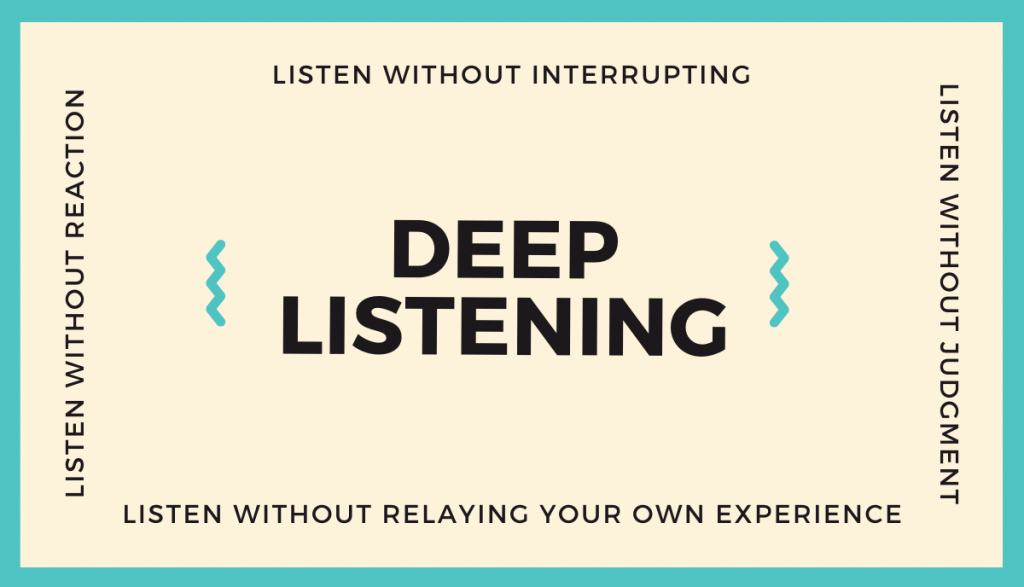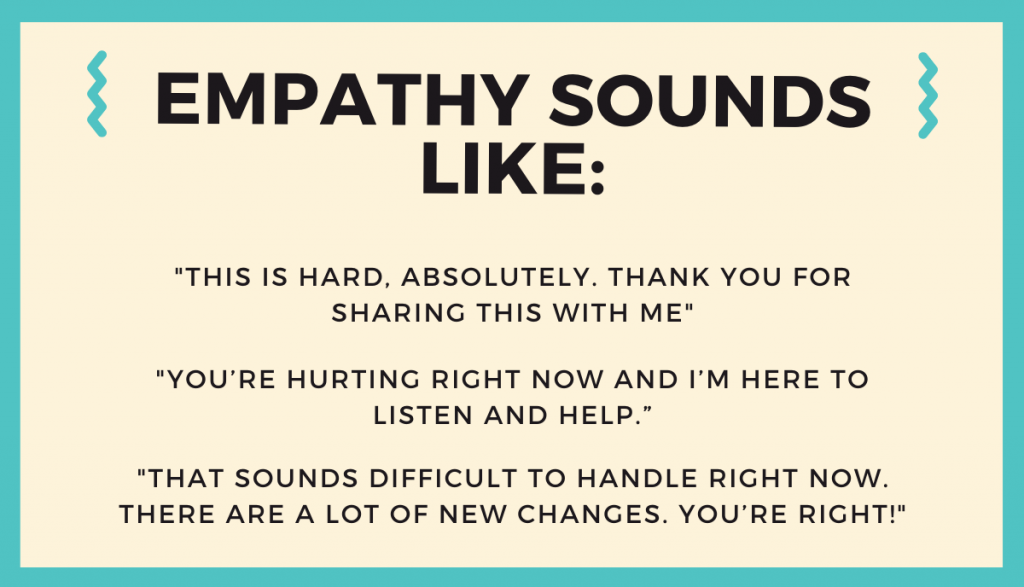Empathy is a word that we hear a lot these days, especially in counseling circles. However, even with the rise in popularity and the buzzword that it’s become, there is still a lot of confusion around what exactly it is and how we can best practice and build this important skill.
Let’s dive into what empathy looks like and how you can encourage others to practice it on your campus.
Empathy vs. Sympathy
First, let’s look at the differences between empathy and sympathy. One of the best explanations has come from Dr. Brene Brown and an animated clip of one of her talks. Empathy gets confused a lot with sympathy and understandably so.
Picture this: a student comes into your office or makes a virtual appointment with you to talk. As they start to share, you learn they are very upset about a recent breakup…crying, hurt, and seeking a way forward through what feels like the worst days of their life right now.
If your first response is, “I remember when I went through a hard break up. It was tough, but you’ll be okay,” or anything along those lines, your response is one of sympathy. Is there anything “wrong” with that response? No. You’re still being a caring school counselor.
Let’s sit with that response for a moment though. Does it seem like your student felt heard? Or, unintentionally, did the focus turn to the hurt that you had gone through?
Sympathy absolutely has its place in our world. When we are working with students and families who are experiencing painful things, though, it’s our natural instinct to default to sympathy because then we don’t have to feel what they are feeling.
In contrast, empathy is entering into the hard emotions with the other person. Empathy can sound more like, “I am so thankful you told me. This is really, really hard. You’re hurting right now and I’m here to listen and help.”
Set Aside Your Judgments
To be able to practice empathy requires that we are aware of our own feelings and can set aside our judgments. Empathy means that we can stop our knee jerk reaction to say things like “Well, at least you…” and “That’s just life”.

Deep listening is one way to build empathy in ourselves and those around us. Think about the last conversation you had with an adult. What did that look like? If you were the one talking, was the other person focused on you and not their phone or computer? I will speak for myself and answer honestly that I am 100% still a work in progress in practicing empathy. And frankly, I hope I always am because that means I’m being mindful of when I’m practicing empathy and areas of growth where I can improve.
How to Build Empathy On Your Campus
Empathy is one of the most important skills we can help students develop and grow. In practicing empathy, students are able to flex their perspective muscles and realize the world is not just about them and what’s happening to and around them. Let’s look at three practices that you could use on your campus with your students and staff.
Caught Not Taught
Building empathy in those around you starts with students and staff seeing and hearing you practicing empathy. The next time you hear a student complaining or frustrated, perhaps you could respond with empathy by saying “That is a hard thing to handle right now. There are a lot of new changes. You’re right!” By responding in this way instead of being quick to minimize or even ignore the comments, you’re instead providing validation, which builds trust towards you.
Words Matter
Take the time to send out an email (feel free to use the Dr. Brene Brown clip above!) to help staff understand the impact that empathic communication has on campus culture, students, and even themselves.

Give parents ideas on how to incorporate empathy into their home lives with practical, easy to implement words and phrases. “This is hard, absolutely. Thank you for sharing this with me – that was brave.” And it’s okay to even give a couple of examples of what not to do, also! Trying to one-up each other with “Yah but…” will make people shut down and not share. Truly, our words matter.
Empower Empathy Champions Around You
Maybe it’s the student in class who regularly gives empathetic responses to their classmates. Maybe it’s the attendance clerk who practices empathy with teachers and parents as they listen to why kids are out or late. Find the people around you who tend to naturally be empathetic and bring them onto your team in championing empathy as a normal response!
Finally, empathy is a challenging character trait to measure, but it’s worth the effort to try and figure out. One resource that Region 13 Counseling Services has created is The Counselor’s Playbook for Elementary and also for Middle School. All of the lessons are amazing, but I’m partial to the empathy lesson because I think it’s so important. The Playbook comes with 8 lessons to offer either in person or virtually and the content is already aligned with the Texas Model of Comprehensive School Counseling.
We know the work you are doing right now is hard and we do not take that lightly. You are seen and so very valued. Please remember to not only practice empathy with others, but also with yourself!
For more strategies on teaching empathy, check out The Counselor’s Playbook!
JoEllen is the Mental Health Liaison between Region 13 and the Local Mental Health Authorities.






Add comment